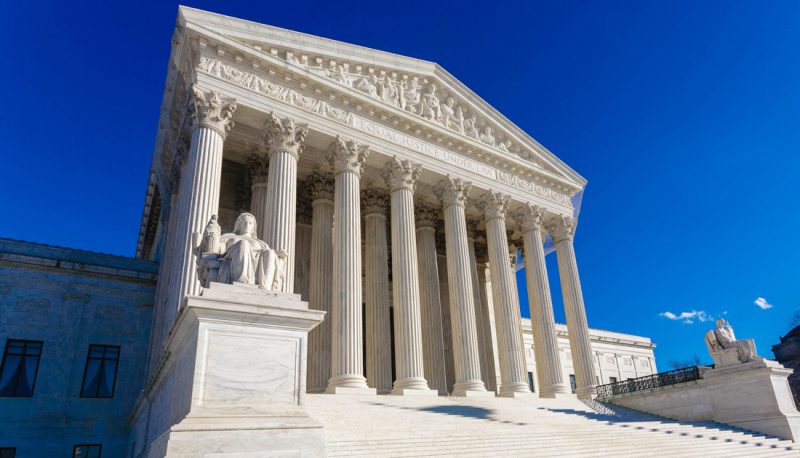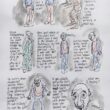In our May issue we published Confirmed Judges, Confirmed Fears by Elliot Mincberg, a senior fellow at the indispensable People for the American Way (PFAW), on the alarming impact Trump appointees are already having on the federal courts. Analysts at PFAW have continued to monitor the decisions of these judges, and The Spectator is presenting their new findings beginning with this first post on the latest threat to Roe v. Wade.
Trump-appointed Supreme Court Justices Neil Gorsuch and Brett Kavanaugh joined a 5-4 May decision in Franchise Tax Bd. of Calif. v. Hyatt that overruled a 40-year-old precedent, Nevada v. Hall, that said that individuals can sue a state in a court in another state. Generally, even when the Court believes a constitutional precedent was wrongly decided, it upholds the case unless there is a special justification outweighing the damage done to the principle of stare decisis, which is central to the rule of law. Justice Breyer’s dissent strongly criticized the majority for overruling Hall for no reason other than their disagreement with it and pointedly wondered “which cases the court will overrule next,” which could well have been referring to Roe v. Wade.
The Court’s 1979 decision in Hall, while unpopular with many state governments, has been recognized as important to help individuals who are harmed by a state’s conduct outside its own borders. In 2016, when the Court had only eight members after the death of Justice Scalia, the Court was split 4-4 on whether Hall should be overruled.
With the addition of Justices Gorsuch and Kavanaugh to the Court, however, there are now five votes to overrule Hall. Justice Thomas’ opinion bluntly stated that Hall was wrongly decided and was inconsistent with constitutional history, even though he acknowledged that “some plaintiffs” had “relied” on the decision by suing states in other state courts.
Justice Breyer disagreed with the majority’s reasoning on the merits of overruling Hall, but in an opinion for himself and the other moderate justices, was even more concerned with what he called the majority’s “dangerous” action in overruling a precedent like Hall “only because five members of a later court disagree with it.” To “overrule a sound decision like Hall,” Breyer wrote, is to “encourage litigants to seek to overrule other cases.” Particularly because of his reference to a previous decision that emphasized the importance of upholding Roe v. Wade, at least one commentator has suggested that the dissent is a “warning” by the Court’s moderates that Roe is in “mortal danger.”







0 Comments